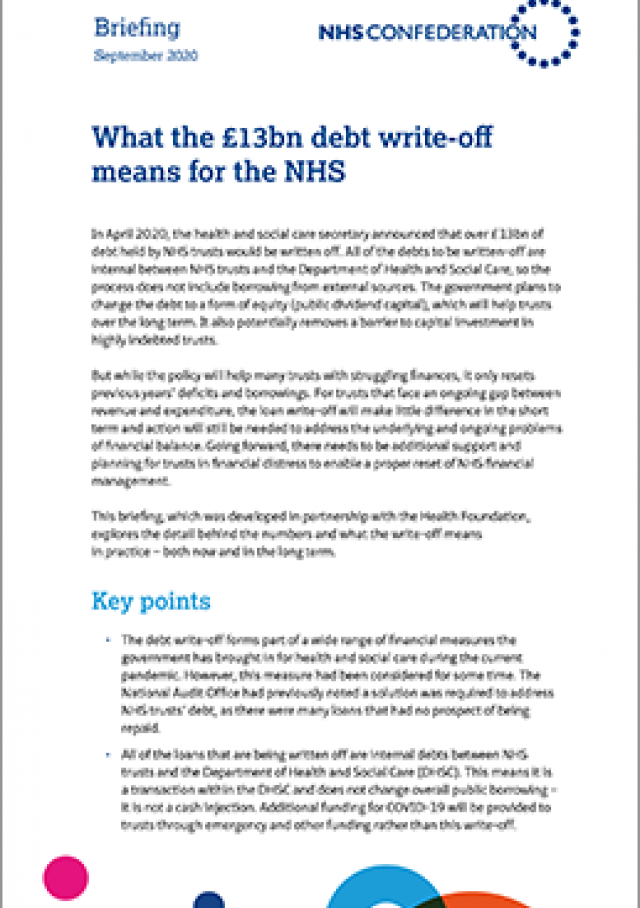What the £13bn debt write-off means for the NHS Developed in partnership with NHS Confederation
September 2020

Key points
- In April 2020, the Health Secretary announced that over £13bn of NHS debt would be written off and converted to public dividend capital (PDC). This was part of a wide range of financial measures the Government brought in for health and social care during the current pandemic.
- All the loans that are being written off are internal debts between NHS trusts and the Department of Health and Social Care (DHSC). This means it is a transaction within the DHSC and does not change overall public borrowing. It is not a cash injection, and additional funding for COVID-19 will be provided to trusts through emergency and other funding rather than this write-off.
- From April 1 2020, there will no longer be any interest charged for these loans. The debt will be converted into equity, known as public dividend capital (PDC). While PDC does not need to be repaid, it incurs an annual cost as a return on the investment. This is currently set at 3.5% of the relevant net assets of the trust, and this money goes from trusts to the DHSC.
- The DHSC and NHS England and NHS Improvement announced the PDC charge will be reviewed later in 2020.
- This policy should help increase the amount of longer-term capital investments and other improvements in vital services. Without this debt, trusts can make stronger business cases for investment in their estates, along with possibly stronger finances to self-finance investment.
- While this is a positive step, concerns remain about the financial situation of many trusts. However, even without the current pandemic, further plans will be needed to address the problems that caused these debts.
In April 2020, the health and social care secretary announced that over £13bn of debt held by NHS trusts would be written off. This briefing explores the detail behind the numbers and what the write-off means in practice – both now and in the long term.
This briefing was developed by the Health Foundation in partnership with NHS Confederation.
Cite this publication
Download the briefing
Further reading
Work with us
We look for talented and passionate individuals as everyone at the Health Foundation has an important role to play.
View current vacanciesThe Q community
Q is an initiative connecting people with improvement expertise across the UK.
Find out more


